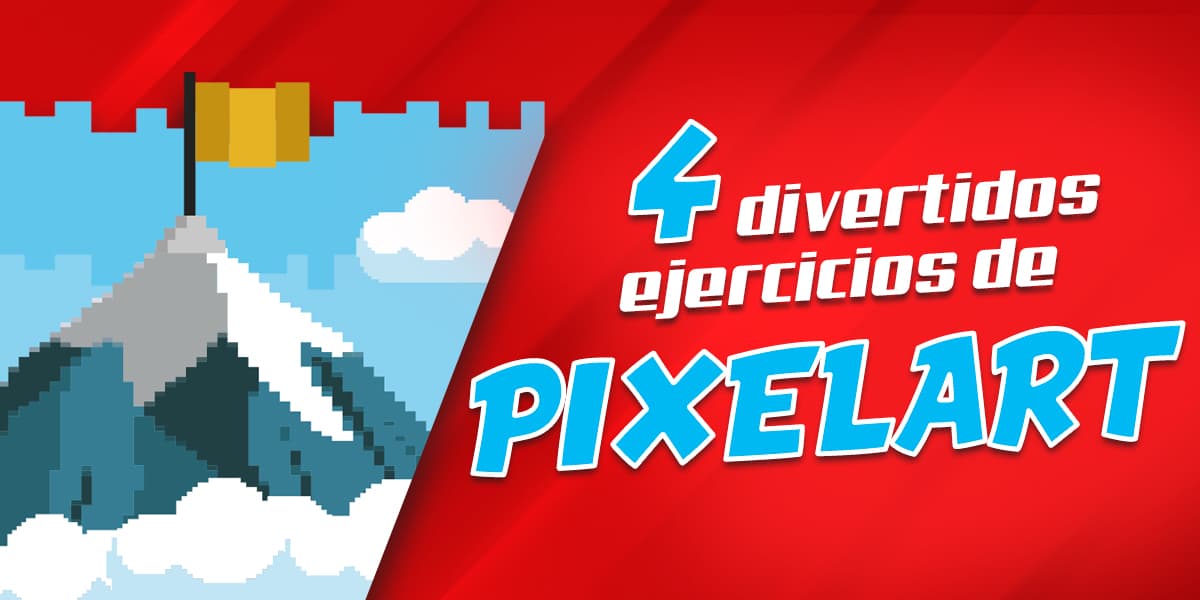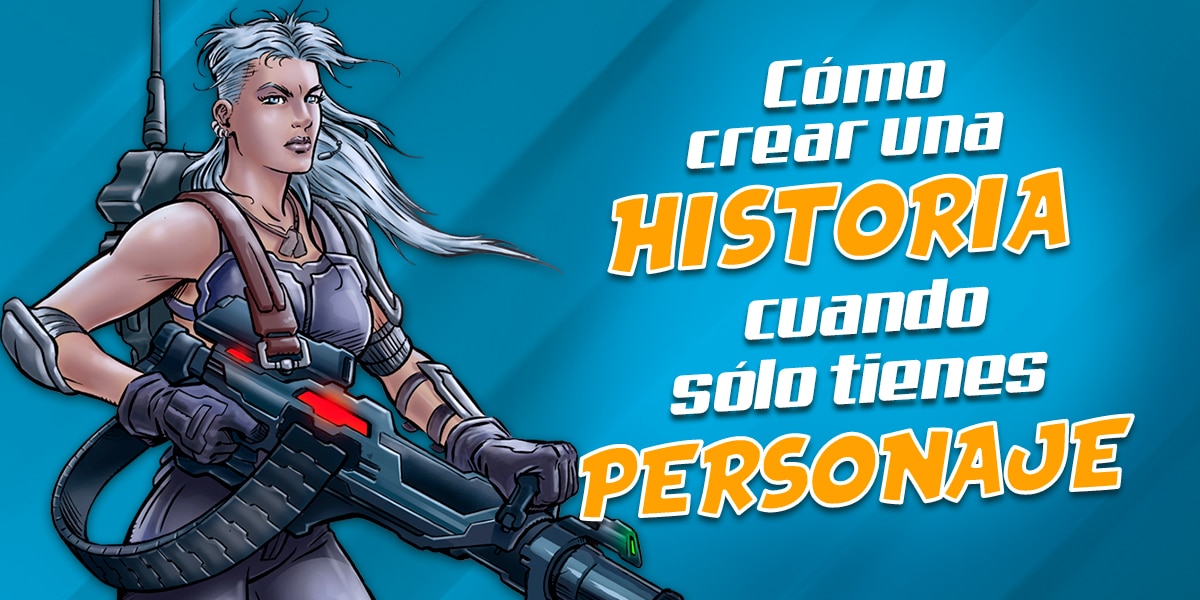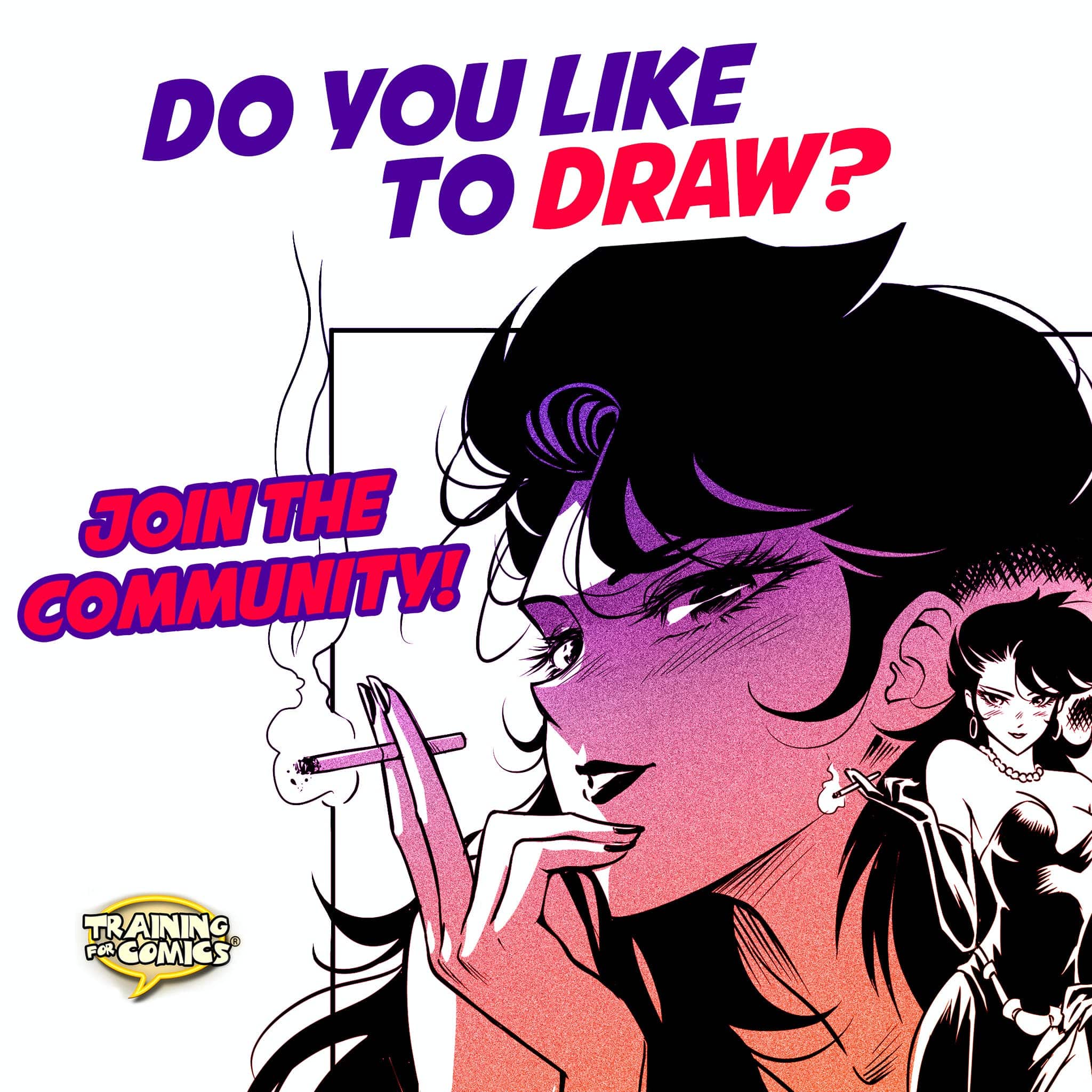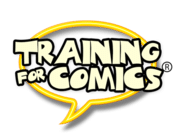NO ESCRIBAS TU HISTORIA DE CORRIDO: EL ARTE DE LA PLANIFICACIÓN CREATIVA
¿Alguna vez has sentido la tentación de sentarte frente a tu escritorio y comenzar a escribir tu historia de cómics de principio a fin sin parar? Si bien el entusiasmo es admirable, este enfoque puede llevarte por un camino lleno de obstáculos creativos. En este artículo, exploraremos por qué escribir “de corrido” puede ser contraproducente y te ofreceremos valiosas estrategias para desarrollar tu narrativa de manera más efectiva y satisfactoria.
Desde la importancia de tomar descansos estratégicos hasta el poder de la planificación previa, descubrirás cómo dar forma a tus ideas de manera organizada y creativa. Prepárate para transformar tu proceso de escritura y llevar tus historias al siguiente nivel. ¡Sigue leyendo y desbloquea el potencial de tu creatividad!
Por Santiago Veron
Evita la Confusión y la Desorientación: Estrategias para una Narrativa Clara
Imagina esto: te sientas frente a tu mesa de dibujo, lápiz en mano, decidido a crear tu obra maestra de cómic de una sola vez. Comienzas con “PÁGINA 1 – VIÑETA 1” y te propones no detenerte hasta llegar a la última página. Suena ambicioso, ¿verdad? Lamentablemente, este enfoque suele conducir a un callejón sin salida creativo.
A medida que avanzas, es probable que te encuentres perdido, sin saber cómo continuar. Peor aún, podrías sentir la urgencia de rehacer partes ya creadas porque se te ocurrieron ideas mejores. Este ciclo de avance y retroceso puede ser frustrante y contraproducente.
Para evitar caer en esta trampa, es crucial adoptar un enfoque más estructurado. Haz clic aquí para descubrir métodos que te ayudarán a organizar tus ideas de manera efectiva. Con las herramientas adecuadas, podrás dar forma a tu narrativa de manera coherente y evitar la confusión que surge al intentar crear todo de una sola vez.
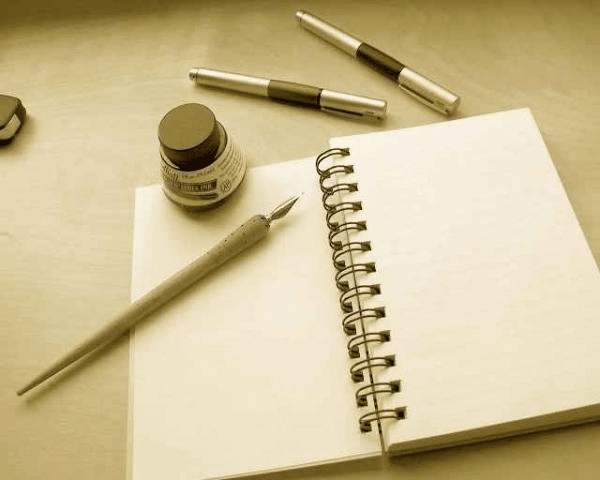
El Poder de Anotar: Capturando la Esencia de tu Historia
Antes de sumergirte en la escritura propiamente dicha, es fundamental que te plantees preguntas clave sobre tu historia. ¿Qué tipo de narrativa estás creando? ¿Cuánto sabes sobre su inicio y su desenlace? Estas respuestas no deben quedar flotando en tu mente; necesitan ser plasmadas de forma tangible.
Toma un papel, abre un documento en tu computadora o utiliza una aplicación en tu teléfono. Lo importante es que comiences a anotar todo lo que sabes sobre tu historia. Este proceso de documentación puede tomar diversas formas:
- Listas de eventos clave
- Tablas con características de personajes
- Párrafos describiendo escenarios
- Gráficos de relaciones entre personajes
- Bocetos rápidos de escenas importantes
El objetivo es vaciar tu mente de todas esas ideas que has estado acumulando. Recuerda, las ideas ocupan espacio mental, y al liberarlas en papel (o en digital), creas espacio para que surjan nuevas inspiraciones.
Una vez que hayas anotado tus ideas iniciales, date un tiempo para releerlas. Es sorprendente cómo este simple acto puede desencadenar una cascada de nuevas ideas. Anota también estas nuevas inspiraciones. Con este mapa mental expandido, estarás mucho mejor preparado para comenzar a trabajar en el desarrollo de tu historia.
¿Quieres mejorar tus habilidades para capturar ideas visualmente? Explora más aquí y descubre técnicas que te ayudarán a plasmar tus pensamientos de manera más efectiva, facilitando el proceso de creación de tu cómic.
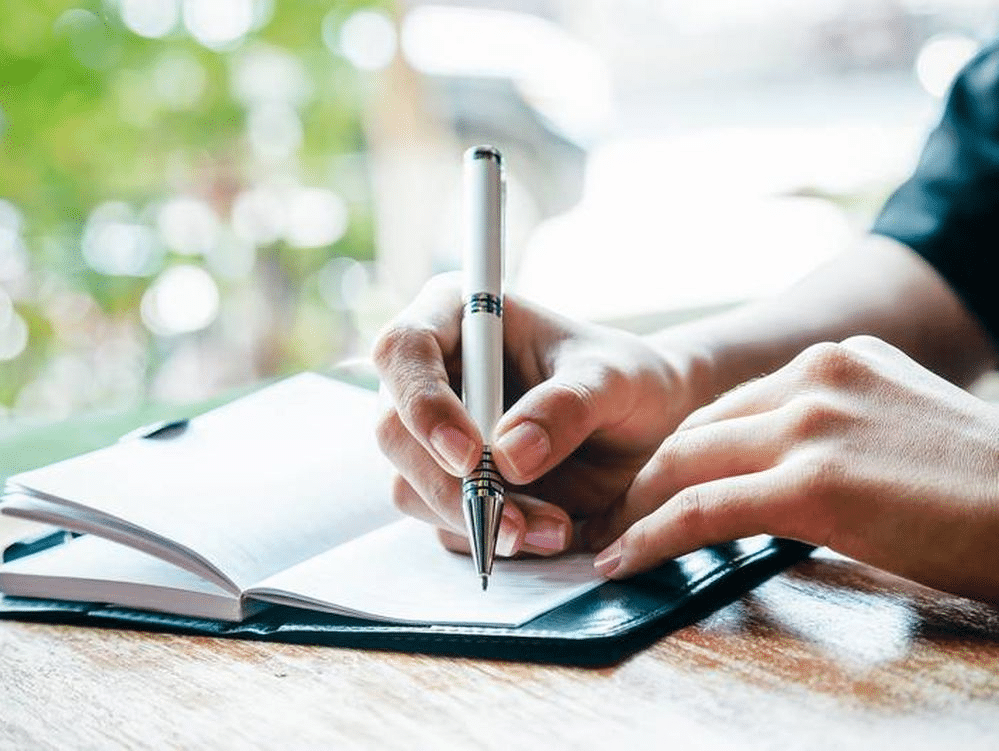
La Importancia de Saber Tomarse un Descanso: Recargando tu Creatividad
En el mundo del arte y la creación, existe la creencia errónea de que la productividad constante es la clave del éxito. Quizás has experimentado esos momentos en los que te sumerges en tu guion, visualizando cada viñeta con claridad, llenando páginas y páginas con diálogos y acciones de tus personajes. Pero, ¿es realmente suficiente? ¿Cuándo se convierte en “demasiado”?
Es fácil caer en un ciclo de preocupaciones mientras escribes:
- ¿Tiene calidad lo que estoy escribiendo?
- ¿Debería reescribir algunas partes?
- ¿Cómo sé cuándo he terminado realmente?
Estas inquietudes pueden aumentar a medida que aceleras tu ritmo de escritura, hasta que inevitablemente llegas a un punto de agotamiento intelectual y emocional. Te encuentras exhausto, vacío de energía y propósito. Pero, ¿es necesario llegar a este extremo?
La respuesta es un rotundo no. Es crucial establecer horarios o incluso días enteros en los que te prohíbas a ti mismo escribir o trabajar en tu historia. Esto es tan importante como tener momentos dedicados exclusivamente a la escritura. Utiliza estos descansos para otras actividades que puedan nutrir tu creatividad de manera indirecta:
- Practica técnicas de dibujo
- Lee cómics o novelas gráficas que te inspiren
- Sal a dar un paseo y observa el mundo que te rodea
- Visita una galería de arte o un museo
- Conversa con amigos sobre temas no relacionados con tu proyecto
Te sorprenderá lo mucho que puede avanzar una historia cuando dejas de escribirla activamente. Al regresar a tu manuscrito después de un descanso bien merecido, encontrarás una nueva perspectiva y energía renovada para continuar.
Ingresa aquí para descubrir ejercicios que estimularán tu creatividad durante tus descansos. Estas actividades te ayudarán a mantener tu mente ágil y lista para cuando regreses a tu proyecto principal.

Escribir Antes de Escribir: Explorando el Universo de tus Personajes
¿Alguna vez has considerado escribir escenas que no formarán parte de tu historia final? Si la respuesta es no, es posible que aún no estés completamente listo para sumergirte en la narrativa principal. Piensa en ello como un entrenamiento: ¿cómo podrías correr una maratón sin haber practicado antes en distancias más cortas?
Este ejercicio de “escritura previa” es invaluable para conocer a fondo a tus personajes. Aquí tienes algunas ideas para empezar:
- Escribe una escena donde tu villano realiza una tarea cotidiana, como ir a la panadería.
- Describe la primera vez que tu protagonista vio fuegos artificiales.
- Imagina cómo sería un día en la vida de tu personaje secundario si tuviera un superpoder inesperado.
Al explorar estas situaciones hipotéticas, liberas tu mente de las restricciones de la trama principal. No te preocupes por el conflicto dramático o la cronología; simplemente deja que tus personajes actúen y reaccionen en estos nuevos contextos.
Este proceso te permitirá:
- Descubrir facetas ocultas de tus personajes
- Entender mejor sus motivaciones y reacciones
- Desarrollar voces únicas y auténticas para cada uno
- Generar ideas que podrían enriquecer tu historia principal
Cuando finalmente llegue el momento de integrar estos personajes en tu narrativa principal, te sentirás mucho más preparado para permitirles actuar de manera orgánica y convincente. La libertad que te das en estos ejercicios se traduce directamente en la profundidad y autenticidad de tus personajes dentro de la historia.
Potencia tu habilidad para crear personajes memorables. Accede aquí para recursos exclusivos que te ayudarán a dar vida a tus creaciones de manera más efectiva y emocionante.
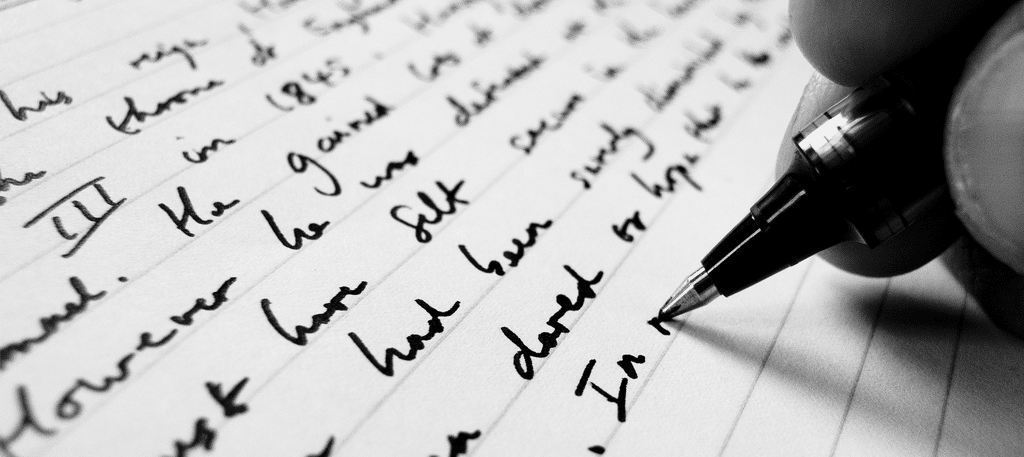
Planea Antes de Actuar: Estructurando tu Narrativa
Una vez que hayas explorado a tus personajes y tengas una idea general de tu historia, es momento de estructurar tu narrativa. Este proceso es como armar un rompecabezas: tienes todas las piezas, ahora necesitas encontrar cómo encajan perfectamente.
Comienza por identificar los puntos clave de tu historia:
- El inicio que engancha al lector
- Los giros argumentales que mantienen el interés
- El clímax que lleva la tensión al máximo
- El desenlace que satisface y cierra la narrativa
Con estos elementos en mente, puedes empezar a agrupar y desagrupar los eventos de tu historia. Si ya tienes claro el principio y el final, estás en una excelente posición para trabajar en el desarrollo intermedio.
Algunas técnicas útiles para esta etapa incluyen:
- Creación de etapas mayores: Agrupa los eventos de tu historia en 2-3 grandes secciones. Esto te dará una visión macro de la estructura.
- Descomposición en escenas: Divide cada etapa mayor en escenas individuales. Pregúntate qué propósito cumple cada escena en la historia general.
- Análisis de transiciones: Examina cómo una escena lleva a la siguiente. ¿Las transiciones son fluidas y lógicas?
- Identificación de vacíos narrativos: Busca áreas donde la historia pueda necesitar más desarrollo o explicación.
No temas si hay aspectos que aún no tienes claros. Deja esos espacios en blanco y continúa trabajando en las partes que sí comprendes. A menudo, las soluciones a estos vacíos surgirán naturalmente mientras desarrollas otras secciones de la historia.
Eleva tu narrativa al siguiente nivel. Descubre aquí herramientas avanzadas de estructuración que te ayudarán a crear historias más cohesivas y atrapantes en tus cómics.

De la Planificación a la Creación: El Momento de Dar Vida a tu Historia
Después de haber seguido todos estos pasos preparatorios, estarás mucho mejor equipado para comenzar el proceso de escritura y dibujo de tu cómic. Es importante reconocer que todo el trabajo previo que has realizado —desde la exploración de personajes hasta la estructuración de la narrativa— ya es una forma valiosa de escritura creativa.
Ahora que tienes una base sólida, considera estos consejos finales para dar el salto a la creación concreta de tu cómic:
- Flexibilidad creativa: Mantén una mente abierta a cambios y ajustes en tu plan original. A veces, las mejores ideas surgen durante el proceso de creación.
- Ritmo de trabajo: Establece un horario regular para trabajar en tu cómic, pero sé flexible. Algunos días serán más productivos que otros, y eso está bien.
- Retroalimentación: No temas compartir tu trabajo en progreso con otros artistas o lectores de confianza. Sus perspectivas pueden ofrecer valiosas ideas para mejorar.
- Equilibrio entre planificación y espontaneidad: Aunque la planificación es crucial, deja espacio para la inspiración del momento. Si te surge una idea brillante mientras dibujas, no dudes en explorarla.
Recuerda, si en algún momento durante este proceso te asaltan las ganas de dibujar una página específica de tu historieta, ¡hazlo! Estas explosiones de creatividad pueden ser increíblemente motivadoras y a menudo resultan en algunas de las mejores partes de tu obra.
¿Listo para llevar tus ideas al papel? Accede aquí a recursos que potenciarán tu proceso creativo y te ayudarán a transformar tus conceptos en vibrantes páginas de cómic.
Conclusión: El Arte de Crear con Propósito
A lo largo de este artículo, hemos explorado por qué escribir una historia “de corrido” puede ser contraproducente y cómo un enfoque más estructurado puede potenciar tu creatividad y la calidad de tu trabajo. Recapitulemos los puntos clave que hemos abordado:
- La importancia de evitar la confusión y desorientación mediante una planificación adecuada
- El poder de anotar y organizar tus ideas antes de comenzar a escribir
- La necesidad de tomar descansos estratégicos para recargar tu creatividad
- El valor de “escribir antes de escribir” para desarrollar personajes más profundos
- La eficacia de planear y estructurar tu narrativa antes de sumergirte en la creación
Adoptar estas estrategias no solo te ayudará a evitar el temido bloqueo del escritor, sino que también enriquecerá tu proceso creativo, permitiéndote desarrollar historias más complejas y satisfactorias. Recuerda, cada artista tiene su propio método, y es importante que encuentres el equilibrio que funcione mejor para ti entre planificación y espontaneidad.
No temas experimentar con diferentes técnicas y adaptar estos consejos a tu estilo personal de trabajo. La clave está en mantener viva tu pasión por la narración mientras desarrollas habilidades que te permitan expresar tus ideas de manera más efectiva.
Ahora que tienes estas herramientas a tu disposición, es momento de poner manos a la obra. Toma tus ideas, organízalas, explora a tus personajes, estructura tu narrativa y, cuando estés listo, da vida a tu historia página a página, viñeta a viñeta.
¿Listo para llevar tu arte del cómic al siguiente nivel? Descubre recursos adicionales aquí y comienza tu viaje hacia la creación de historias verdaderamente memorables.
Recuerda, cada gran cómic comenzó como una idea en la mente de su creador. Con dedicación, planificación y creatividad, tú también puedes transformar tus ideas en obras que cautiven e inspiren a los lectores. ¡El mundo está esperando tu historia única!



